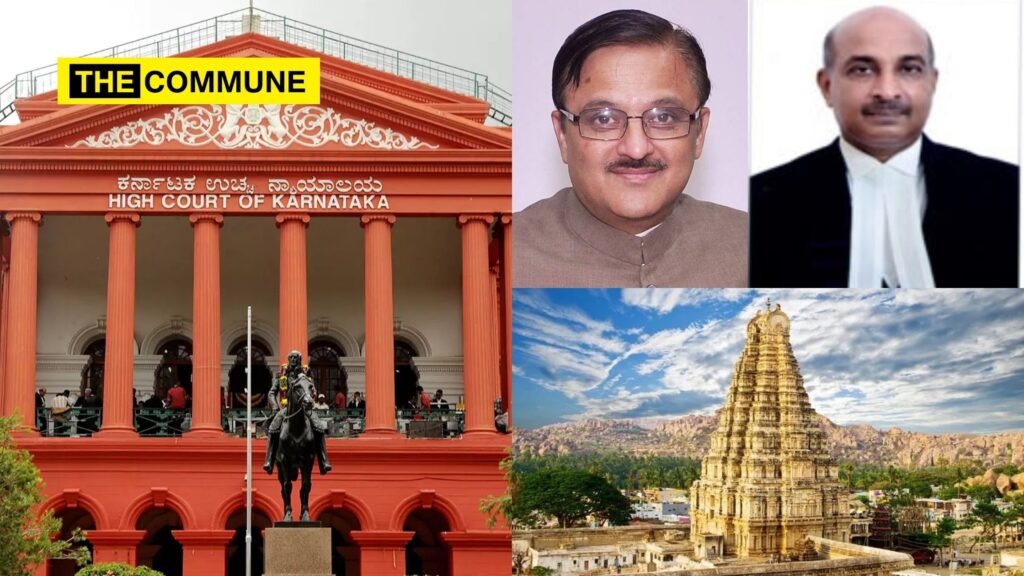In a setback to Hindus having control over there temples, the Karnataka High Court has dismissed pleas that sought the strict implementation of Section 7 of the Karnataka Hindu Religious Institutions and Charitable Endowments Act, which maintains that only Hindus can be employed in the management of Hindu Temples, Live Law has reported.
“What heavens are going to fall if respondent 4 being the Deputy Commissioner, for overlooking the arrangements will enter the temple. Hindu religion was never so narrow. Hindu religion as professed never consisted of people who are so narrow minded,” the bench comprising of Chief Justice Abhay Oka and Justice S Vishwajith Shetty observed orally as per the report.
The bench cited ‘Constitutional philosophy’, which appears to be a variant of the more popular term ‘Constitutional morality’, to question the maintainability of such petitions.
“After the Constitution has come into force, we will never entertain such petitions in the court. There is something known as the Constitution, there is something known as Constitutional philosophy. We will not entertain a petition which will take us 100 years back.” the Justices observed while dismissing the petitions without providing any relief.
Section 7 of the said Act says, “The Commissioner and every Deputy Commissioner or Assistant Commissioner and every other Officer or servant, appointed to carry out the purposes of this Act by whomsoever appointed, shall be a person professing Hindu Religion, and shall cease to hold office as such when he ceases to profess that religion.”
The bench stated, “On plain reading of section 7, there is no general prohibition on appointing an officer or servant to work in the offices of commissioner, deputy commissioner or assistant commissioner. The restriction imposed by section 7 is that Commissioner, Dy Commissioner, Asst Commissioner and every officer or servant appointed to carry out purposes of the said act of 1997, shall be a person professing Hindu religion. The test for applicability is that the officer or servant is appointed to carry out the purpose of the Act.”
The bench noted before concluding, “Judicial notice will have to be taken of the fact that government officers, police officers, irrespective of their religious faith and beliefs effectively assist all religions in celebrating their respective religious festivals. In fact that is part of the Constitutional philosophy and concept of Secularism.”
It is to be noted that the affairs of the Mosque and Church are managed by the members belonging to respective religions and not any person outside of the particular religion.
Many have been taken aback by the Karnataka High Court’s ruling and have raised questions about applying secular logic to religious places. Netizens asked if whether the Karnataka High Court would allow a Hindu to administer the affairs of a Church or a Mosque. Some went on to ask if the Justices meant that Islam and Christianity comprises of narrow minded people.
@rashtrapatibhvn @narendramodi @AmitShah @myogiadityanath Yes we Hindus were not narrow-minded & that's the reason all others took advantage of it. Would like to ask the Karnataka High court, does it apply only to Hindus or to other community too https://t.co/fJcOcJFsfY
— amyara (@amsalvas1) December 14, 2020
https://twitter.com/IndianRajeshNCo/status/1338501472745521152
Is Karnataka High Court Saying Slam, Nity are narrow! If not are they going to appoint Hindu as a Waqf board chairman
— sonb4022 (@sonb4022) December 14, 2020

